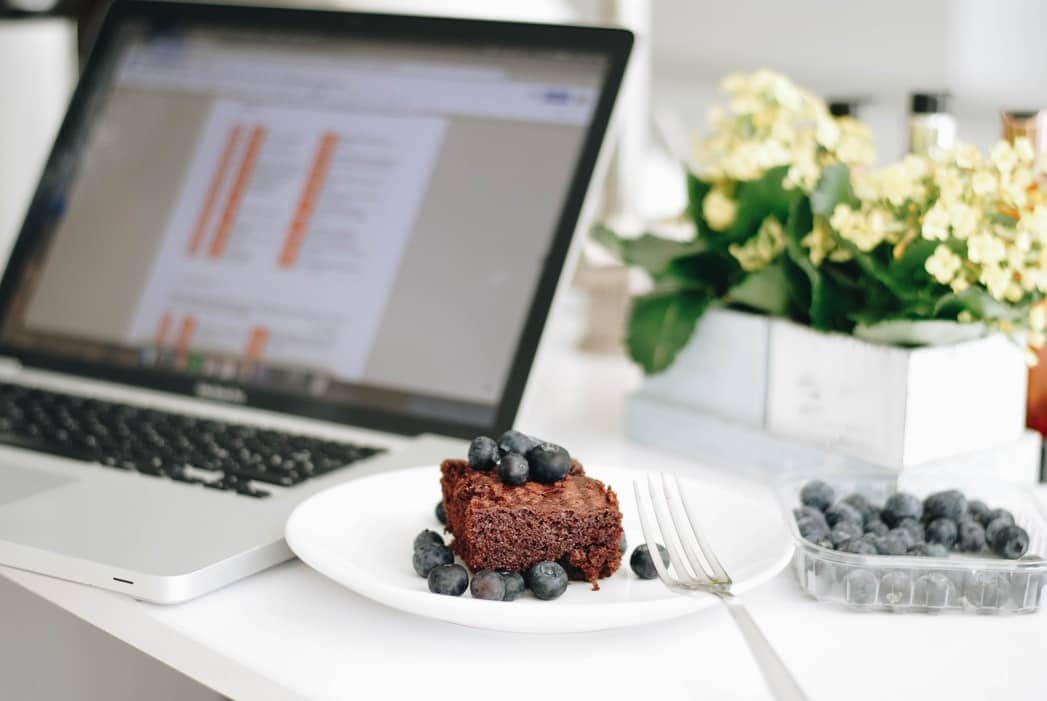It is no surprise that the more time you spend sitting at your desk, the bigger impact it can have on your health. If you’re an office-based worker, you most likely have spent the past few months sitting in front of a screen at home.
To keep both your body and brain active, you might be making a conscious effort to get up every half an hour, walk outside in the morning or at lunch and maybe endure desk-friendly exercises.
Now, a key area to focus on is your eating habits, staying physically active might be hard to do if you feel sluggish from a heavy lunch. If you catch yourself snacking a lot, it might be worth taking note of how much and how often certain foods are consumed.
If you’ve been returning to the office, the change and uncertainty might have led to overconsumption.
1. Stay hydrated
The part of your brain that controls your hunger, is the part that also controls your thirst. Whilst working, many people can confuse thirst for hunger.
Keeping hydrated throughout the day can help control unnecessary eating. It is recommended to drink 2 litres a day but there is no one size fits all for everyone.
Dehydration at work can lead to poor productivity, reduced cognitive abilities and slower reaction times. A clear indication is your urine, the closer it is to clear or light yellow, the more hydrated you are likely to be. Ensure water is your main desk beverage and avoid any fizzy drinks and juices.
2. Hide temptation
Studies have shown that visibly accessible treats, like a biscuit tin, lead to greater consumption whilst working as opposed to the biscuit tin being out of sight.
Of course, if you’re back in an office, you can’t dictate to any communal snacks being stashed away but you can ensure tempting foods are out of your line of vision.
Try to apply the 80/20 rule, most of the time make the best choices you can and keep a treat just that, a treat. You will see a large benefit in your concentration, energy levels and mood. If hunger is a distraction, try some high-protein snacks such as hard-boiled eggs and edamame.
3. Routine
When it comes to lunch, it can be tempting to finish off with a sweet treat, but that can soon become a bad routine. Instead of grabbing something with chocolate, make fruit your friend.
Make fruit your go-to snack by having 3 pieces on your desk, set yourself personal goals to finish each one by the end of the working day.
Once your brain gets used to the routine and challenge, you will longer crave the unhealthy treats.
4. Smart lunching
Healthy lunching when working is tricky to get right, especially if you are at home and you have a fridge filled with weekend leftovers. An ideal lunch will contain the right balance of protein, sugars, fat, fibre, carbohydrates and other nutrients.
A meal which is filled with high carbs such as pasta releases glucose quickly which gives you a burst of energy followed by a slump and a drain in motivation.
A study found that the more fruits and vegetables people consumed, the more happier and engaged they became. This is because they contain vital nutrients that encourage the production of dopamine.
Ensure your lunch is balanced by preparing in advance and making batch meals at the start of the week.
5. Don’t eat at your desk
Multi-tasking your way through lunch might feel like a genius way to get through your workload but it can be bad for your health and productivity. There are many reasons why your lunch break should be away from your screen, one being that it makes you more likely to overeat.
Lunchtime is key to giving yourself a brain break to refresh your mind. It can also be easy to spend an hour scrolling through social media but being stuck on your phone screen can leave you feeling stressed.
This will impact your eating habits later in the afternoon. Practise mindful eating by tasting and savouring each mouthful uninterrupted, you will feel much more satisfied and happier.





